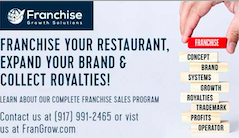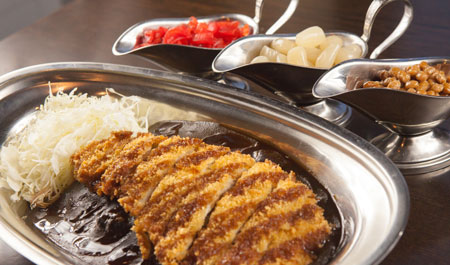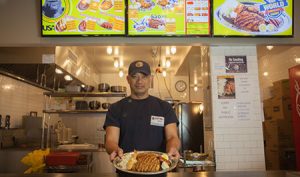Legal Issues and COVID29 – Excerpt – Other potential avenues also turn on the exact language of the lease. If the tenant’s obligation to pay rent is conditioned on the landlord’s ability to deliver to the tenant continued access to the premises, it would reasonable to conclude that rent can be excused while the premises cannot be accessed.
==============================
Today’s post is written by New York attorneys Michael Einbinder and Richard Bayer of the law firm Einbinder & Dunn. They have years of experience handling a variety of legal work for businesses large and small. The post today reflects their thoughts and advice regarding how small businesses can deal with the current COVID 19 issue.
Whether you’re running the small independent business or are an independent contractor or if you are a franchisor or a franchisee, you will find the information contained in this post helpful. Of course, if you need greater detail or have questions, the contact information for Einbinder & Dunn is located at the bottom of the post.
We wish everyone to stay safe and look to the future as we move past this trying and critical time in our history.
===============================
A Message About COVID-19
By Michael Einbinder and Richard Bayer-
Photo by Clay Banks on Unsplash
Recently, we have received numerous inquiries from clients, including those in the retail and hospitality industries, concerned about the impact that Covid-19 will have on their businesses. Although the landscape appears to be ever-changing, we wanted to send this email to offer you general guidance and practical considerations as well as to highlight important legislature to keep in mind. As a firm, we are deeply committed to assisting our clients through these trying times and we will hold that commitment steadfast while new developments unfurl.
More and more states, counties and other municipalities are issuing “shelter-at-home,” work from home mandates and other restrictions on gathering in groups larger than 10, 20 or 50. The impact of such mandates has been felt across the board and has been especially painful for restaurants, bars, nightclubs, gyms, movie theaters, retail businesses, barber shops, health and beauty salons and countless other consumer facing businesses.
Real Estate Lease and Other Contracts
It is not surprising that in this current climate, many businesses are seeking help to understand their lease obligations. Can they close their store, restaurant, or business? Can they stop paying rent? The short answer is likely yes, but not in every instance. Your lease may contain clauses that may allow you to close your business and/or stop paying rent. Additionally, applicable case law may also support your ability to close your business and/or stop paying rent.
You are likely seeing the terms force majeure and “Acts of God” appear frequently in articles, newsletters and other publications as more and more businesses are looking for ways to freeze performance under a contract or perhaps, terminate the contract altogether. A force majeure clause, which typically includes a reference to “Acts of God,” is one that permits a party to a contract to be relieved from performing under that contract during a time when, due to some event outside of its reasonable control, the party’s ability to perform is impeded, hindered or prevented. Generally speaking, there is a high bar for the invocation of a force majeure clause and whether or not it will apply will depend on the exact language of the contract and the law of the jurisdiction set forth in the contract. In the context of a commercial lease, if the lease contains a force majeure clause that specifically relieves performance in the event of a pandemic or similar event, a tenant may be permitted to close and stop paying rent. However, force majeure clauses can often be a frustrating dead end because: (i) courts apply it very strictly; (ii) leases frequently apply it to limited circumstances such as delays in construction and few if any reference pandemics; and (iii) many leases specifically do not permit force majeure to forgive payment of rent.
However, in some jurisdictions case law may provide a stronger argument (than a contract) for relief from a contract, including possibly permitting a tenant to close its business and/or stop paying rent. Two such doctrines found in case law are the: (i) discharge by supervening impracticability; and (ii) prevention by governmental regulation or order. As to the former, a supervening event (such as a pandemic) may allow a tenant to close and/or stop paying rent if an event occurs, the non-occurrence of which was a basic assumption upon which both parties made the contract. The event must have been unforeseeable. The standard is high. It is not enough that the business has been made difficult or unprofitable, it must have been rendered impracticable, which means incapable of being performed. In the context of a lease, if customers are legally restricted from visiting a business location due to unforeseen circumstances (a pandemic lockdown), a court may find that to be sufficient under the supervening impracticability doctrine to permit the tenant to close and/or stop paying rent.
Prevention by governmental order is self-explanatory and much easier to prove. As in the case of the recent order by the Governor of New York, if a business is simply prohibited from operating due to unforeseeable circumstances, which prevents it from operating according to the terms of a contract (in a lease situation, the business is prohibited from operating in the premises), then the party may be excused from performance (in the case of a tenant, remain open or pay rent). The businesses that were targeted in the original Governor’s Orders in New York, such as gyms and movie theaters, certainly can argue they fall into this category. There is a gray area if businesses, such as restaurants, are able to partially operate through takeout and delivery. Whether their level of operation is enough to make their businesses legally “operable” will probably have to be tested in court.
Other potential avenues also turn on the exact language of the lease. If the tenant’s obligation to pay rent is conditioned on the landlord’s ability to deliver to the tenant continued access to the premises, it would reasonable to conclude that rent can be excused while the premises cannot be accessed.
Assuming for a moment that applicable law does not permit the tenant to close its business and/or stop paying rent, many businesses will make the practical decision to do just that. What repercussions may follow from that will likely be specified in the lease and subject to state/county/local municipality mandates. Many jurisdictions have already announced moratoriums on commercial evictions.
Many of the legal principles that offer an avenue for tenants to close and/or stop paying rent under a lease may also be applied to other contracts, including force majeure, doctrine of supervening impracticability, prevention by government regulation as well as others including frustration of purpose). Again, whether performance can ultimately be excused will depend on the exact language of the agreement and the applicable jurisdictional law.
We are urging clients to review their leases and contracts for the types of clauses that we highlighted above. We can help if you like with the review and the development of a plan of action for the future. With a proactive approach and open dialogue with the other party (whether your landlord, supplier or other contracting party), you may be able to develop a plan of action that gives you relief now and provides for the continuation of your business after things normalize.
=======================================

=======================================
Banking and Customer Assistance
Businesses with insufficient cash reserves or access to capital will likely struggle during this time and for many, unfortunately, this outbreak will result in their permanent closure. For companies suffering from or expecting to suffer from a cash shortage, obtaining a credit line or increasing one is critical. We strongly recommend that such businesses immediately contact their existing banking partners to see what opportunities for financing are available. If your current banking partners are unable to assist, please let us know. We have cultivated strong relationships with contacts in the banking and financing industries and may be able to make an introduction.
The U.S. Small Business Administration has implemented a disaster loan assistance program under which, small businesses that have suffered economic injury as a result of Covid-19 may qualify for low-interest federal loans. Loans of up to $2,000,000 may be offered for use to pay debts, payroll, or other bills that cannot be paid due to the impact of Covid-19. Here is a link to the SBA’s website: https://disasterloan.sba.gov/ela/ Other relief may become available and businesses should continue to search for grants and programs that may provide additional funding.
In addition to increasing your access to capital, you should be acutely aware of voluntary assistance initiatives being offered by your existing business partners. Numerous credit card companies are encouraging customers who are experiencing financial hardship due to Covid-19 to reach out and discuss available options, which may include fee waivers, temporary interest rate reductions, waived penalties for missed payments Con Edison, a provider of electricity and gas in New York, is offering to extend payment deadlines to customers without penalty, provided that customers apply for that assistance. Throughout the country, other business partners will be offering similar assistance initiatives.
Insurance
We are advising all clients to review their insurance policies carefully and especially, their business interruption coverage. Business interruption insurance is generally intended to cover losses from a direct interruption to a business. It typically covers lost revenue, and fixed expenses, such as rent and utilities. Some companies may have additional coverage in the form of a contingent business interruption policy which is intended to cover losses resulting from indirect disruptions, such as supply chain issues. Because many insurers excluded viral or bacterial outbreaks from standard business interruption policies as a result of the SARS outbreak, whether your policies will cover losses resulting from Covid-19 business interruption will turn on the exact language of the coverage.
================================================================
MATTO FRANCHISE
A Revolution is Brewing
LEARN MORE HERE:
https://www.mattofranchise.com/
=================================================================
Employment
These are extremely difficult times and businesses are forced to consider making equally difficult decisions regarding their employees. The White House has requested that states delay reporting lay off figures out of a fear that the skyrocketing numbers will set off another wave of panic in the stock market. Without a doubt, the number of layoffs will be staggering. Union Square Hospitality Group has already announced layoffs of 80% of its work force. Hotel and hospitality heavyweights such as Hilton, Marriott and MGM have furloughed tens of thousands of employees.
While not garnering the same media attention, small businesses will have to make the same decision. Principals will need to determine whether the business continue to pay staff their full wage during this outbreak or will it be forced to lay off employees, or short of that, furlough salaries until things recover.
Federal and state governments are keenly aware of this issue and are seeking to implement relief packages. Phase I included the Families First Coronavirus Emergency Response Act, which was signed into law on March 18th. The Act extends sick leave to workers diagnosed with or in quarantine due to Covid-19. A tax credit is made available to employers in an amount equal to 100% of the qualified sick leave wages paid by the employer. New York State has announced that employers are required to provide job protection and paid sick leave for individuals who have been quarantined as a result of Covid-19. New York City has enacted an Employee Retention Grant Program that offers assistance to New York City businesses with one to four employees that demonstrate at least a 25% decrease in revenue as a result of Covid-19. Other states and local municipalities may have similarly enacted assistance packages.
Further financial relief will required. As of today, potential recovery plans would give $1,200 to many Americans. Ongoing assistance will undoubtedly be necessary. New York has waived its seven-day waiting period to register for unemployment insurance and reports indicate that over 21,000 calls were made in a single day compared to approximately 2,000 the week before.
Government Support
In addition to the initiatives indicated above, the Federal government has extended the tax filing deadline until July 15, 2020. Tax payers will now have until July 15, 2020 to file and make tax payments that would have otherwise been due on April 15, 2020. If you are expecting a refund, you may want to file your Federal tax return as soon as possible. It is unclear when refunds will be issued, but those funds, if issued, would be helpful during this outbreak. New York State, at the moment, is silent on this issue, but we expect further guidance. We recommend that you keep abreast of state updates.
=====================================
About Einbinder & Dunn
Our story begins in 1990, when Michael Einbinder and Terrence Dunn became partners. We shared a vision to offer clients real value—by providing personalized, yet cost-effective legal services. We also employ a team of professional, highly dedicated associate attorneys and two paralegals, in addition to other support staff, all of whom share the partner’s vision of a sophisticated yet personalized practice. Based in Midtown Manhattan, with offices in White Plains and Millburn, New Jersey, Einbinder & Dunn serves mid-size and larger companies as well as small businesses and entrepreneurs.
====================================
DISCLAIMER
This post is not intended to constitute legal advice, which would require a full review of your agreements and further clarity on the government response, which is in constant flux. All information, content and links in this email are provided for general information purposes only. Information below may not constitute the most up-to-date legal or other information, as the same is continuously changing. This email contains links to other third-party websites. Such links are only for the convenience of the reader. We do not recommend or endorse the contents of the third-party sites. Readers should contact an attorney to obtain advice with respect to any particular legal matter. No reader should act or refrain from acting on the basis of this email without first seeking legal advice from counsel in the relevant jurisdiction. Only an attorney can provide assurances that the information contained herein, and your interpretation of it, is applicable or appropriate to your particular situation.

















